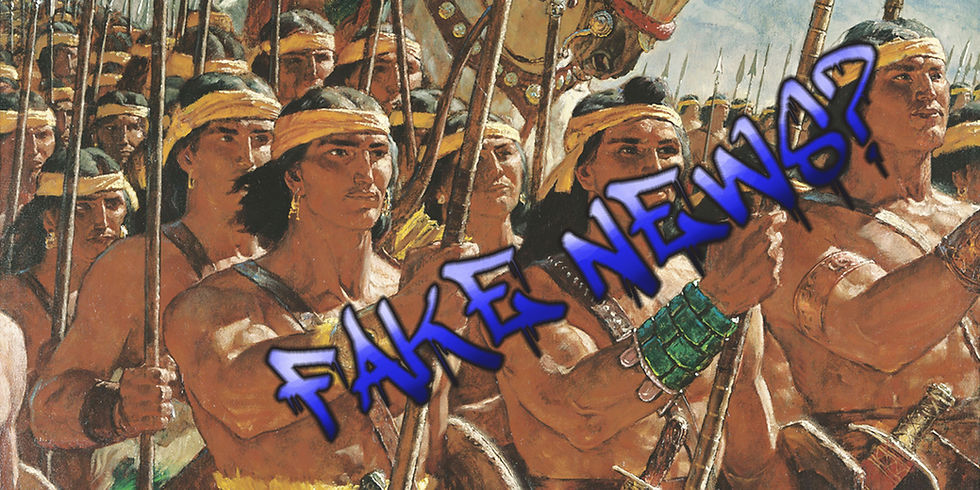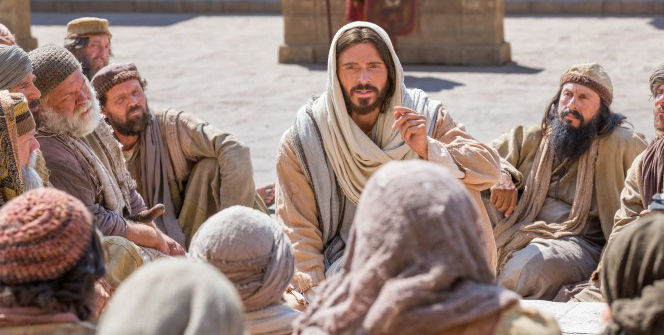Jacob 5 - The Allegory of the Olive Tree
- R.W.
- Mar 27, 2020
- 6 min read

A verse by verse breakdown of what's what and who's who in The Allegory of the Olive Tree.
Disclaimer: The Allegory of the Olive Tree is a history/future account of the house and children of Israel. It has general historical application and meaning as well as layered meaning for our own personal lives. Like Isaiah’s teachings, it is represented on more than one level in interpretation. This is not intended to be a full interpretation of the allegory, merely a help in understanding what’s being referenced.
v.3
The Tame Olive Tree - Israel (God’s covenant people)
Vineyard - The world (full of other trees whose branches are wild and bring forth wild fruit)
v.4-5
“Prune, nourish, and dig about it” - The work of prophets.
Why do fruit trees need pruning?
Pruning involves cutting away branches that bring forth wild fruit, or branches that grow in the wrong direction. Branches that don’t grow in uniform with the rest of the branches inhibit the growth of the other branches and reduce the size and amount of fruit a tree can produce.
A fruit tree that is pruned has increased sunlight penetration to the leaves and fruit. It also has better air movement through the tree.
Pruning guides the growth and provides structure to the tree. Pruned trees produce more fruit, and fruit of greater size and quality.
House of Israel References
God removes the wicked and calls those who will to repent that the way may be clear to “shoot forth young and tender branches” (new generations in righteousness). Those who do not repent are removed from the tree.
How does this apply to God’s covenant people (ie members of the church) today?
(Alma 60:23; 3 Nephi 18:31)
What should our attitude be towards those who have been “cut off”?
(3 Nehpi 18:32; D&C 121:41-45)
v.6
“After many days it began to put forth somewhat a little, young and tender branches; but behold, the main top thereof began to perish.”
The 12 tribes of Israel were divided into 2 kingdoms. The Northern Kingdom (made up of 10 tribes) and the Kingdom of Judah (the remaining 2). Prophets came to cry repentance, but the largest portion of Israel rejected God, all but Judah. (2Kings 17: 13-18). Hence a few tender branches sprang forth, but the main top perished. Eventually Judah itself would become corrupt. (Luke 3:8-9)
Personal Application
If we wish to be a tame branch, are we growing in the right direction?
Are we yielding good fruit?
“Sin” was known as a military term in archery to “miss the mark.” A branch growing in the wrong direction is not oriented properly with the other branches and world around it. Not only will it not be capable of producing good fruit, but in the process will prevent the other branches from producing good fruit themselves.
Luke 3:8-9
Those who claim the benefits of the covenant without producing fruit.
What does one have a right to expect from those who “enjoy our society?”(Remember that Macbeth’s crime against his king is all the more treacherous because Duncan was a guest in Macbeth’s house.) Is it possible that each of us who claims the privileges and benefits of the kingdom of God will have our own fiery furnace to pass through in which our loyalty is purified as dramatically as it was for Shadrach, Meshach, and Abed-nego? Is there some kind of battleground out there ahead of us, some kind of moral Kirtland or metaphysical Carthage that will yet give us our chance to stand up and be counted, like the 2,000 stripling warriors of whom it was said, “They were . . . true at all times in whatsoever thing they were entrusted” (Alma 53:20)?
What is required to be part of God’s covenant people? (2 Ne 30:2)
Don’t be an idle branch. The time will come that those who do not produce fruit will not be counted worthy to stand.
v.13-14
Scattering of Israel (see 2 Kings 17:1-6) 10 Tribes carried away by Assyria.
2 Kings 25:18-26 Judah (Jerusalem) overthrown and Jews carried away into Babylon. (Except for Mulekites & Lehi’s family)
Christ’s Ministry
(Before & After Resurrection) 15-28
v.7,10
Christ enlists the gentiles to take hold of the root. (Gal. 3:14, Acts 9:15; 14:27).
v.18
Gentiles respond to the gospel message, partake in the new covenant through baptism (Christ’s gospel) and take hold of the “moisture of the root.” Or in other words are connected to Abraham and the priesthood by “adoption” into the house of Israel.
v.20-25
Christ visits the lost tribes. (3 Ne 16:3; 17:4)
20-22 – Poor spot of ground that brought forth good fruit (people unidentified)
23 – Poorer spot of ground with good fruit (people unidentified)
24 – Another branch with good fruit (people unidentified)
25 – Good ground with good and bad fruit (Nephite nation in Americas. Hel. 5:3-4, Alma 26:36)
What was the benefit of God scattering his people (good branches) around the world (vineyard)?
“The scattering of Israel throughout the world sprinkled the blood that believes, so that many nations may now partake of the gospel plan.” -James E Faust Oct. 1982 conference
What does that have to do with our role in “gathering Israel” today?
The Great Apostasy – v.29-49
v.30
“All sorts of fruit” (JSH 1:5-6)
v.34
“…they have nourished the roots, that they are alive and they have not perished; wherefore thou beholdest that they are yet good.”
(JSH 1:19) Christianity survived because of the gentiles. The Bible, covenants and Christianity were preserved.
v.35
“…profit me nothing so long as it shall bring forth evil fruit.”
A good root system is good for nothing if the fruit of the tree is bitter and corrupt.
Our heritage, our pioneer ancestors, our history and their testimonies (sealed in sacrifice) does no good unless we are connected worthily I the priesthood, bring forth good fruit, and raise up a righteous generation unto the Lord. (2 Nephi 25:26)
“We are always only one generation away from complete apostasy.” – Elder Holland
Don’t let it be our generation that drops the baton.
v.37
(D7C 45:21-30)
v.38-40
Visits the other tribes.
(40-44 reference to the fall of the Nephite Nation)
v.46-47
The Lord laments the fall of His vineyard.
“After digging and dunging, watering and weeding, trimming, pruning, transplanting, and grafting, the great Lord of the vineyard throws down his spade and his pruning shears and weeps, crying out to any who would listen, ‘What could I have done more for my vineyard?’
“What an indelible image of God’s engagement in our lives! What anguish in a parent when His children do not choose Him nor ‘the gospel of God’ he sent!” -Elder Holland Oct. 2003
Gathering of Israel/Last Days
v. 52-54
“Let us gather Israel”
Natural scattered branches are grafted back into the original.
Branches of original tree grafted into scattered/wild trees.
What does this mean? The spreading of the natural branches about the vineyard in the last days?
D&C 82:14
Throughout history Zion has referred to a centralized location of God’s united people. Abraham was commanded to flee and raise his family, Moses led the children of Israel out of Egypt and through the wilderness. They were spiritually and physically separated from the world.
Even in the early days of the church the saints gathered in the US and from across the seas and built up Zion like communities and finally fleeing west to Utah.
Zion no longer runs. But expands. Not so much a physical place (though the new Jerusalem will be built in the Millennium) but Zion is now a people united in covenant stretched forth across the world. The branches of the gospel have been spread, and are spreading to all nations, kindreds, and tongues.
Said Joseph Smith:
“I want to say to you before the Lord, that you know no more concerning the destinies of this Church and kingdom than a babe upon its mother’s lap. You don’t comprehend it. It is only a little handful of Priesthood you see here tonight, but this Church will fill North and South America-it will fill the world.”
v.59
“the roots thereof. May take strength because of their goodness”
We are connected to our roots, and they to us. We are never not involved. We are never not connected.
v.61-62
Servants called to labor in the vineyard.
“Now is the period during which the Lord and his servants will make the final great effort to take the message of truth to all the peoples of the earth and to reclaim the descendants of ancient Israel who have lost their true identity… You have come to the earth when the foundation has been laid for this great work. The gospel has been restored for the last time. The church has been established in almost every part of the world. The stage is set for the final dramatic scenes to be enacted. You will be the principal players. You are among the last laborers in the vineyard. This is the yoke that is set upon your necks. This is the service for which you are chosen” – Dean L. Larsen Apr. 1983 Conference
v.63
Possible reference that the covenants were first given to the Jews, then the Gentiles. But in the last days the gospel will be first brought by to the Gentiles, then to the Jews and the scattered tribes (who were first previously).
v.65-68
The process of pruning, digging about, and nourishing the trees set forth. All things must be done in order and in righteous judgement. (D&C 88:119)
v.72
“the Lord of the vineyard labored also with them.”
We are never alone in doing the work of God. (D&C 84:88)
v.74
Tree becomes as one body, roots and branches.
“And he shall turn the heart of the fathers to the children, and the heart of the children to their fathers, lest I come and smite the earth with a curse.” – Malachi 4:6
v.75
The tree and fruit is good “even like as it was in the beginning”
How was it in the beginning?
v.76
The Millennium




Comments